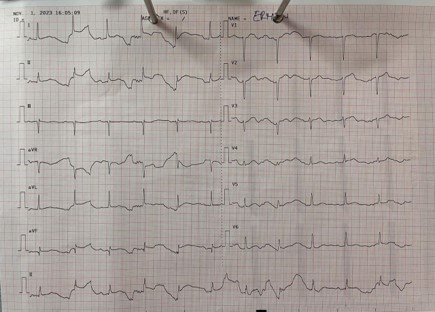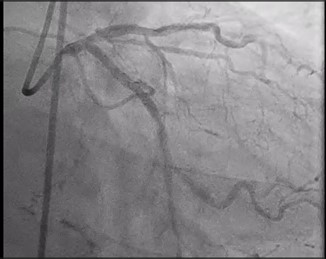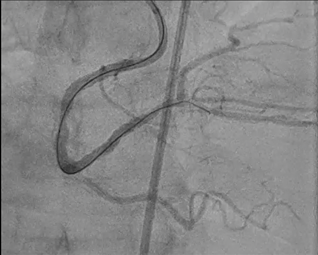Lots of interesting abstracts and cases were submitted for TCTAP 2024. Below are the accepted ones after a thorough review by our official reviewers. Don’t miss the opportunity to expand your knowledge and interact with authors as well as virtual participants by sharing your opinion in the comment section!
TCTAP C-100
Optimizing Guiding Catheter and Device Delivery : A Systematic Approach for Successful Intervention
By Ronaldi Ronaldi, Muhammad Syukri
Presenter
Ronaldi Ronaldi
Authors
Ronaldi Ronaldi1, Muhammad Syukri1
Affiliation
RSUP. Dr. M. Djamil Padang, Indonesia1,
View Study Report
TCTAP C-100
Coronary - Complex PCI - Multi-Vessel Disease
Optimizing Guiding Catheter and Device Delivery : A Systematic Approach for Successful Intervention
Ronaldi Ronaldi1, Muhammad Syukri1
RSUP. Dr. M. Djamil Padang, Indonesia1,
Clinical Information
Patient initials or Identifier Number
Relevant Clinical History and Physical Exam
A 76 year old man presented with CCS III refractory angina despite optimal medical therapy. The patient had a long history of adherence to medications and follow-up. His cardiovascular risk factors were ex-smoker and diabetes melitus. This patient is known as a three-vessel disease (3VD) patient with previous history of PCI using 2 DES in 2020 and 2022.


Relevant Test Results Prior to Catheterization
The laboratory findings were within normal limit. The electrocardiogram showed sinus rhythm with ST-T changes. The echocardiogram revealed reduced left ventricular ejection fraction (46%)


Relevant Catheterization Findings
Coronary angiography demonstrated a diffuse stenosis in right coronary artery (RCA) with patent stent in left anterior descending artery (LAD) and left circumflexartery (LCx).






Interventional Management
Procedural Step
The PCI was performed using an antegrade approach, difficulty to engaged guiding catheter and device delivery. We opted for using JR (6Fr) guiding catheter followed by “The Anchor Balloon Technique”, “The Torpedo Balloon technique” and also “The Inchworm technique” to deliver device during PCI procedure.
We used 2.5x15 mm NC Balloon and 3x15 mm scoring NC balloon, inflated up to 20 atm for lesion preparation. To overcome the difficulty in device delivery, we elected to apply various and specific technique. Subsequently, a drug-eluting balloon 2.75x46 mm was deployed to optimize the result.



Case Summary
The procedure described was using multiple approach to overcome difficulty in guiding engagement and device delivery. This case highlights the importance of various delivery technique for achieving favorable and successful PCI outcomes.

